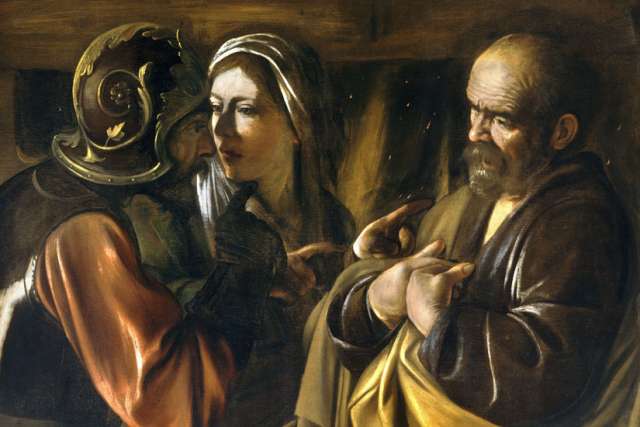The temple elite thought that they could deal with the “problem” by arresting Jesus and having Him executed, and on Good Friday it looked as if their plan had succeeded. Jesus was betrayed, arrested and crucified. His followers had nearly trampled each other in their rush to escape and disassociate themselves from Him.
God, as always, had other plans. God raised Jesus from the dead, thereby affirming everything that He had taught and done during His ministry, as well as designating Him judge of the living and the dead. As witnesses of these wonderful events, the apostles could not contain themselves. They fearlessly proclaimed the joyous message near and far.
Those in power realized that they still had a problem on their hands, and an even greater one. News like this travels fast, and it was already having an effect on many people. So the council put a gag order on the apostles — they were not to speak of Jesus any more.
Gag orders are utterly ineffective when people lose their fear and are infused with hope and joy. Oppressive regimes of all types know this and do their utmost to maintain a powerful stranglehold of fear and isolation on the hearts and minds of those they rule. In the case of the apostles, they were empowered by the Holy Spirit, which was an empowering and comforting experience of the divine presence. They weighed the warning and threat they received, and in a split-second made their decision — it was far better to obey God than any human being, regardless of their exalted title or station. In fact, they were delighted at the honour of being able to suffer on behalf of the divine name!
They had been broken, terror-filled men devoid of any hope. Only their encounter with the Risen Christ and the presence of the Holy Spirit made them now bigger than life. That should give us a hint as to what we should pray for!
John’s vision in Revelation was a variation on the apostles’ praise-filled proclamation. In his vision, all of creation and the inhabitants of both the earthly and spiritual realms were praising God and the Lamb. They alone were worthy of praise and adoration, and all legitimate power and authority flowed from them. This is a powerful antidote to the sort of slavery and fear earthly powers can generate in people.
In the strange, dream-like encounter with the Risen Christ on the Sea of Galilee, the nervous and strangely silent disciples shared a dawn breakfast with Jesus on the shore. They acted as if they had never seen Him before, even though He had breathed the Spirit into them in the upper room.
The attention rapidly shifted to poor Peter, who probably still laboured under the guilt and shame of his cowardly denial of the Lord during the arrest and trial. Three times he denied Jesus, so by way of reconciliation Jesus drilled him with the same question three times: do you love me more than the others? In reply to each of Peter’s affirmations of love, Jesus demanded that he show it by feeding the sheep and tending the lambs. This was the model of leadership that echoes the Good Shepherd parable in chapter 10 and the footwashing in chapter 13. Love shows and proves itself in humble and loving service — nothing else.
Jesus had also commanded His disciples to love as He had loved them. He had already demonstrated just how far that love would go — to the cross. After His solemn charge to Peter to care for the flock, He added that Peter’s life would no longer be his own. He would be taken where he did not want to go, and would give his life in witness to the Gospel.
Love and faith are hard taskmasters — they ask the most of us and bring out the best of us, but only when we choose to walk the path.


